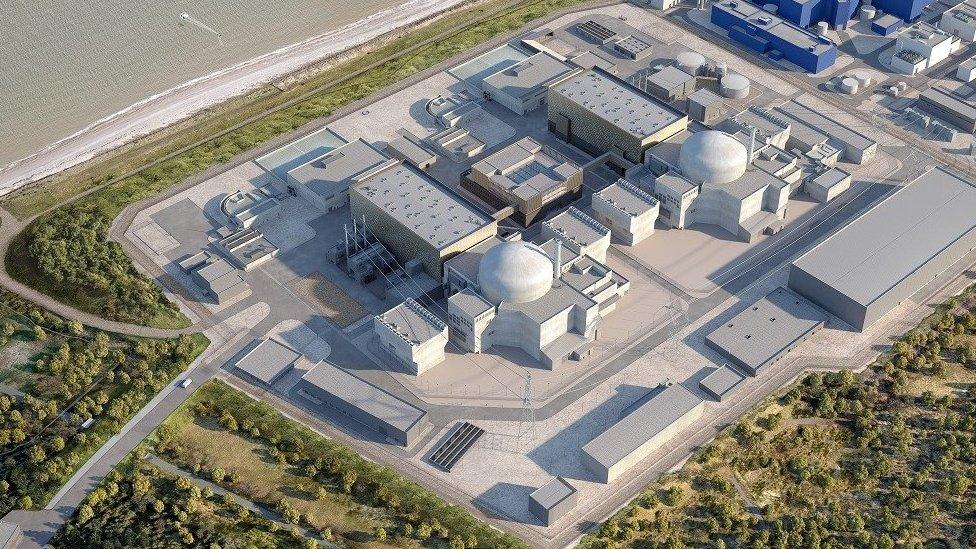PM says Sizewell C is essential to energy security
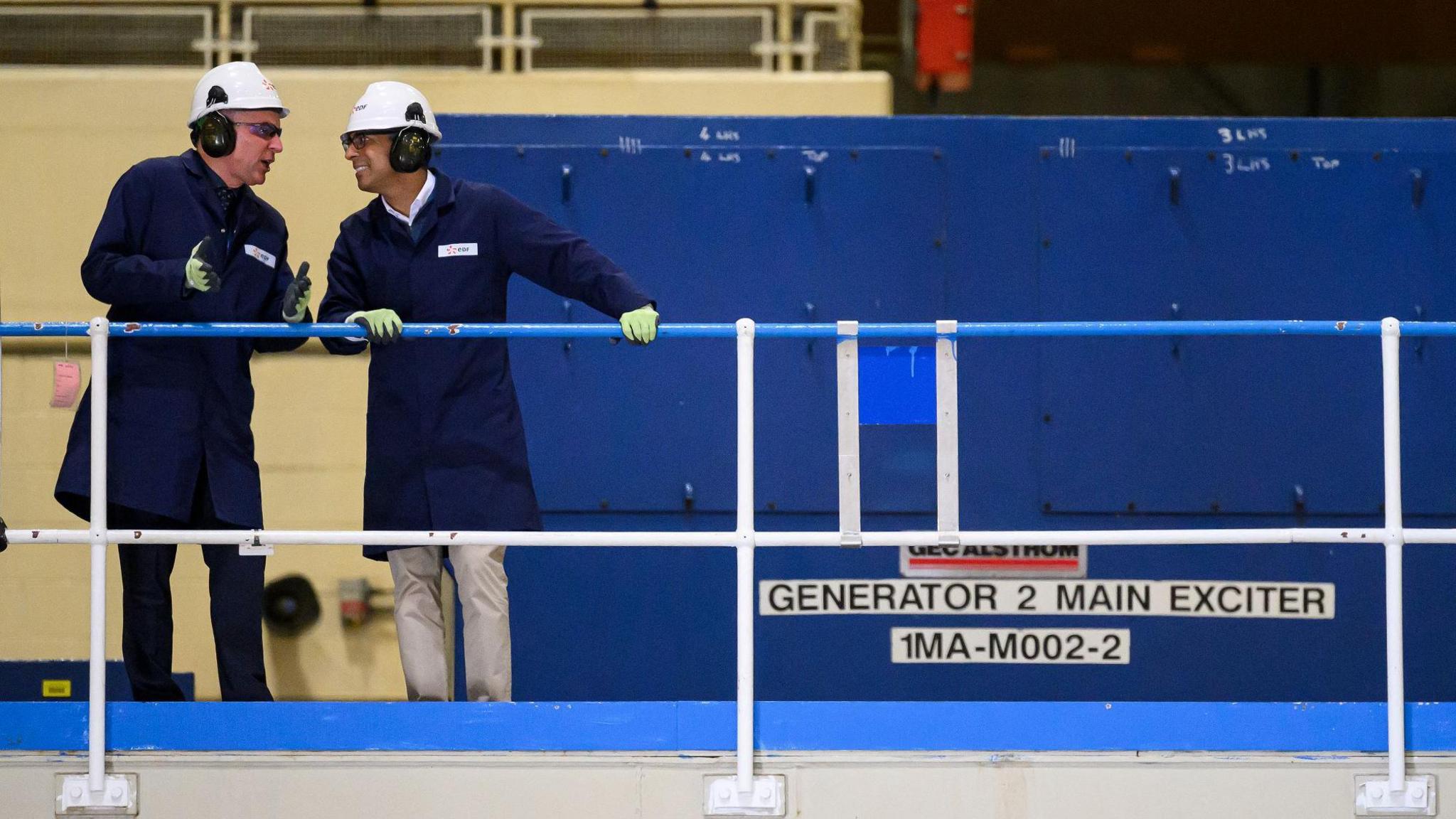
Mr Sunak was given a tour of the Sizewell B nuclear power facility on Wednesday
- Published
Prime Minister Rishi Sunak reinforced his party's commitment to nuclear energy during a tour of Sizewell B.
Building permission for Sizewell C on the Suffolk coast, which will generate 3.2 gigawatts (GW) of electricity, was granted in July 2022 and was expected to cost £20bn.
Quizzed about whether government had received any more assurances on further sources of private investment for the project, Mr Sunak told reporters: "We are confident of delivery of our nuclear plant".
In its manifesto, Labour said it would "end a decade of dithering" on nuclear power, and would ensure the long-term security of the sector.
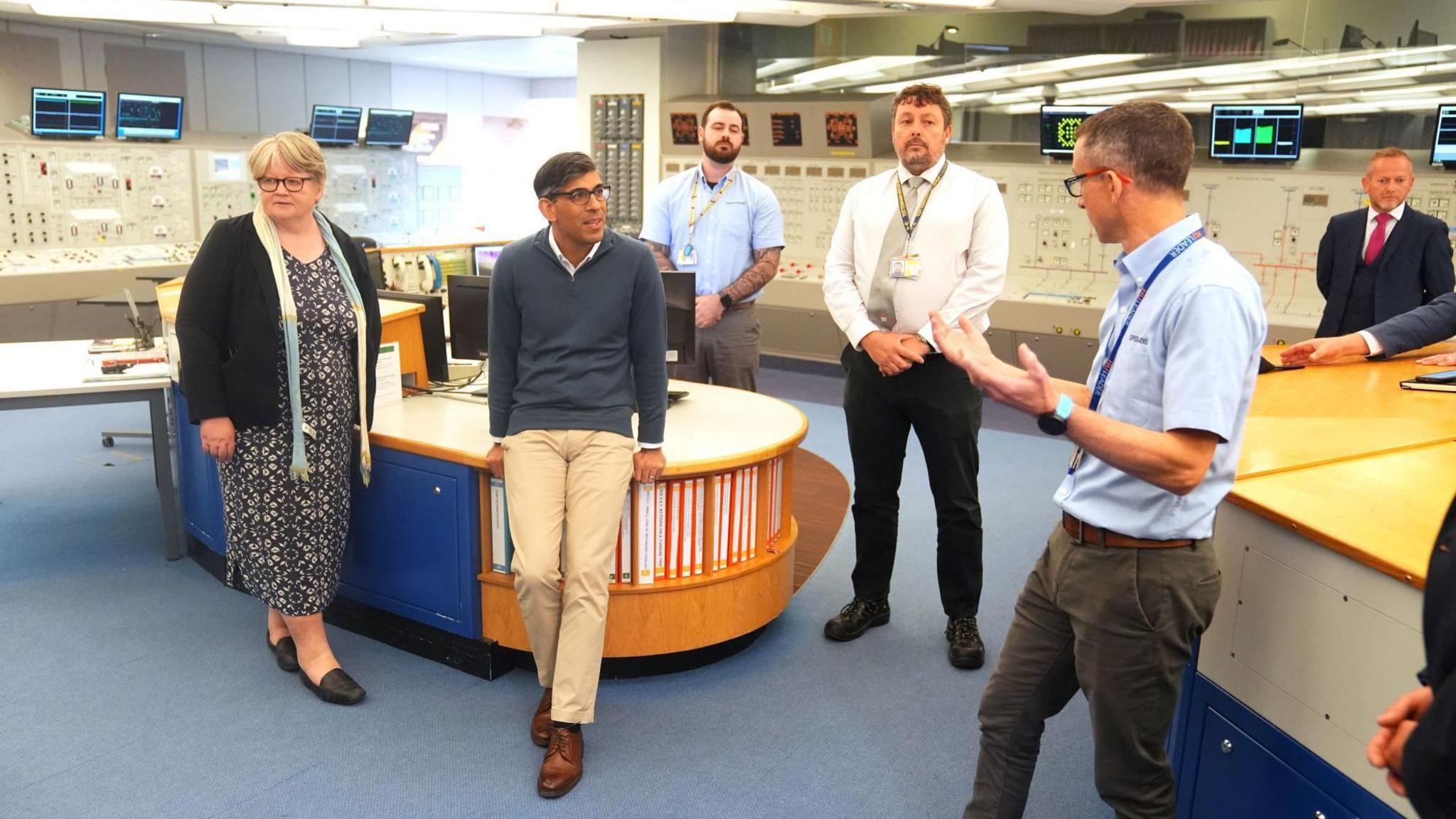
The PM spoke with staff at the nuclear facility control room
"The choice for people at this election is between a Conservative Party that believes in prioritising our energy security, investing more in nuclear, also making sure we get to Net Zero (emissions), in a sensible proportionate way that does not saddle ordinary families with massive bills," Mr Sunak said.
He took aim at Labour's energy policy, accusing the party of "rushing towards Net Zero faster than other countries" and "banning North Sea energy" (new oil and gas licences), which he claimed would lead to higher household bills.
On oil and gas, Labour said it expected "production in the North Sea will be with us for decades to come, and the North Sea will be managed in a way that does not jeopardise jobs.
"We will not issue new licences to explore new fields because they will not take a penny off bills, cannot make us energy secure, and will only accelerate the worsening climate crisis," the party said.
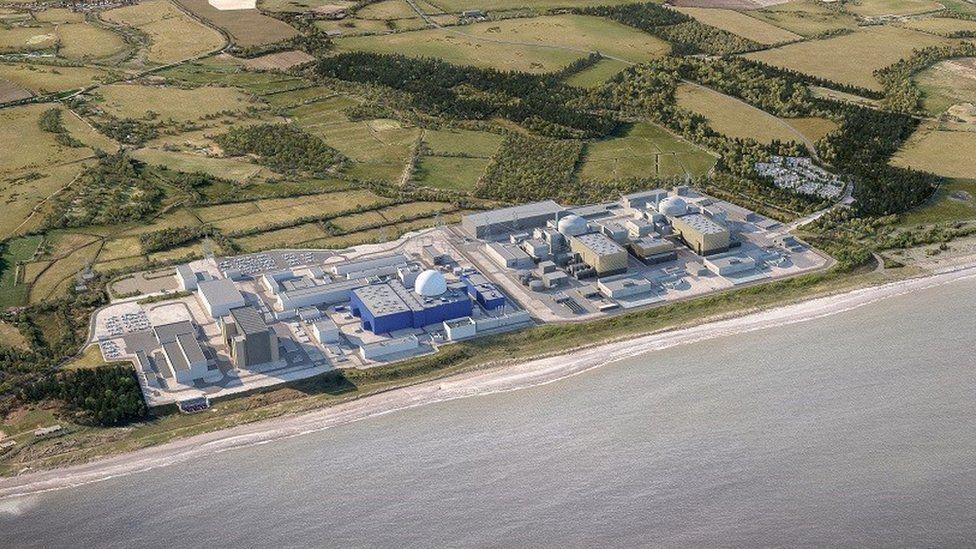
A new reactor at Sizewell would provide power for six million homes, according to one of its funders, EDF Energy
The Green party's manifesto has a commitment "to see a phase-out of nuclear energy, which is unsafe and much more expensive than renewables.
"The development of nuclear power stations is too slow given the pace of action we need on climate," the party said.
"They also create unmanageable quantities of radioactive waste and are inextricably linked with the production of nuclear weapons."
Green Party co-leader Adrian Ramsay said recently: "The road to national energy security must lead to real change – a turn away from fossil fuels and a massive investment in renewable energy generation and energy saving programmes like home insulation delivered through local authorities."
Reform said it wanted to fast-track clean nuclear energy with new small modular reactors, built in Britain.
It would also increase and incentivise ethical UK lithium mining for electric batteries, promote combined cycle gas turbines, clean synthetic fuel, tidal power and explore clean coal mining.
The Liberal Democrats made no mention of nuclear power in its manifesto but had a strong commitment to renewables.
It wanted to "accelerate the deployment of renewable power and deliver energy security by investing in energy storage, including green hydrogen, pumped storage and battery capability.
It also wanted to work with European neighbours to build a sustainable supply chain for renewable energy technology.
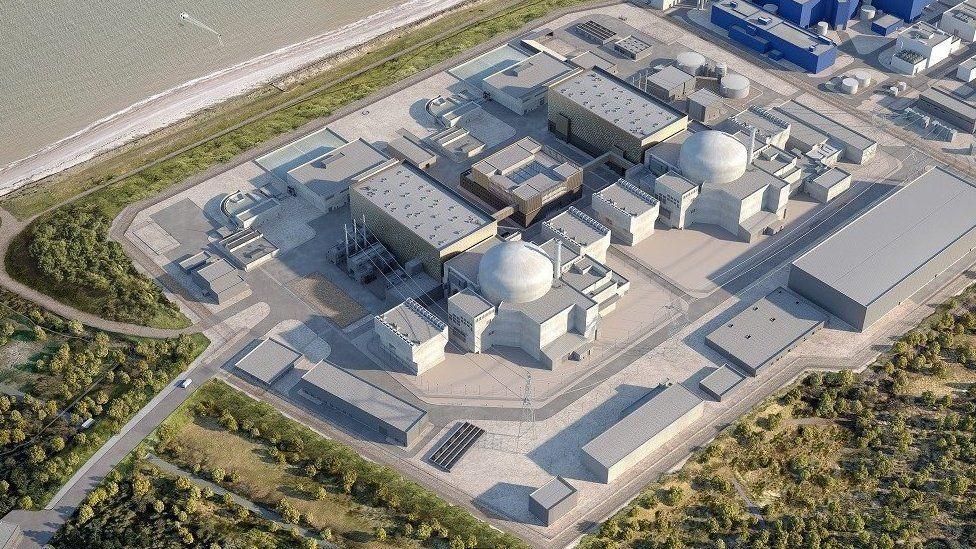
A drawing of the proposed Sizewell C nuclear reactor and plant on the Suffolk coast
Campaign group, Stop Sizewell C, said: “We are not sure what comfort Sizewell C staff can draw from a visit by a clearly outgoing Prime Minister whose government failed to get the project over the line.
"More importantly, the likely incoming Energy Secretary had to be pressed to mention Sizewell C on his visit to East Anglia.
"We urge a Labour government to hit pause and reconsider this ill-advised project.
"Backing Sizewell C would be backing yesterday’s technology, just as wind power is poised to overtake gas as Britain’s main source of electricity."
Follow Suffolk news on Facebook, external, Instagram, external and X, external. Got a story? Email eastofenglandnews@bbc.co.uk, external or WhatsApp us on 0800 169 1830
- Published11 June 2024
- Published18 June 2024
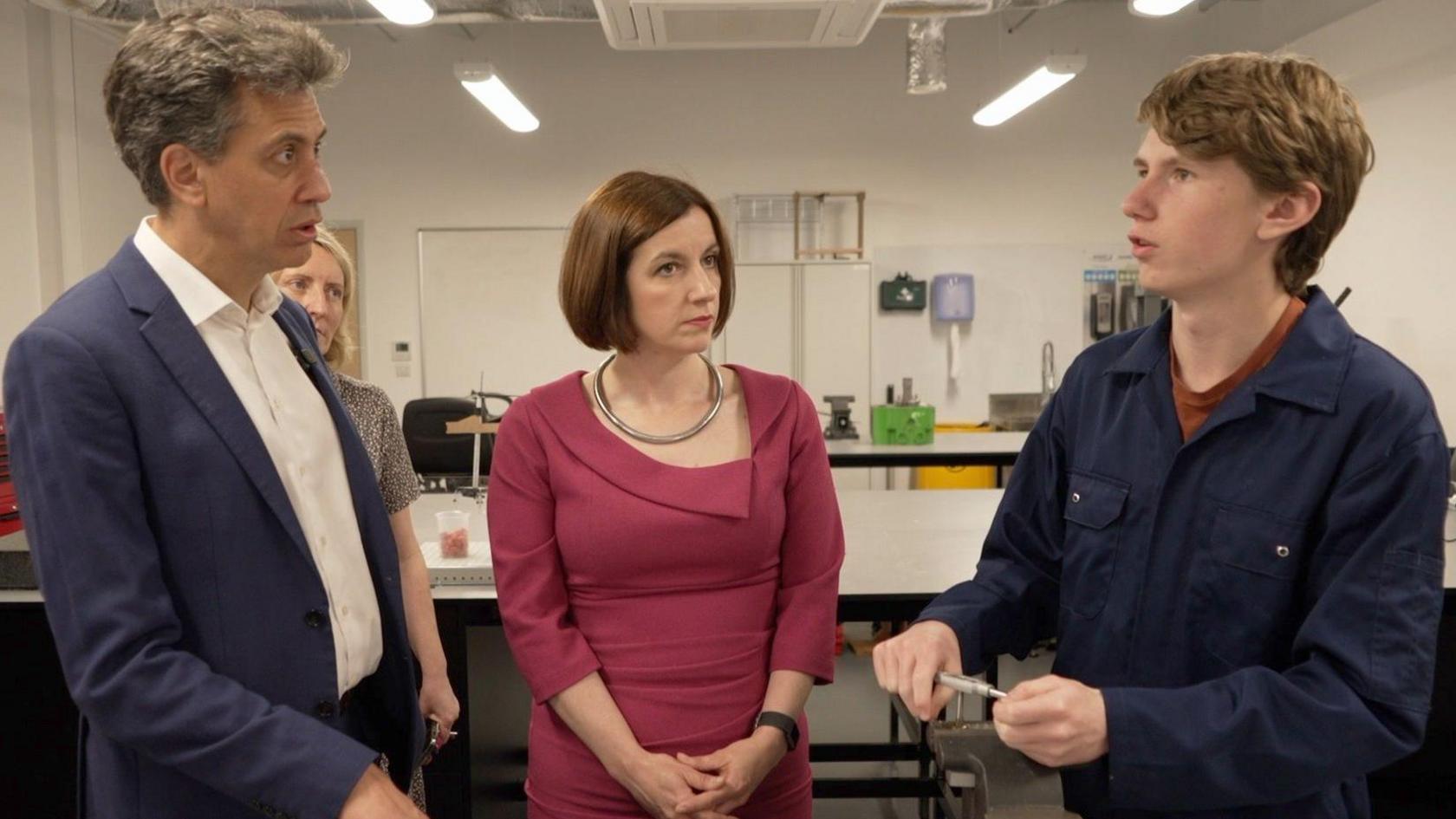
- Published19 April 2024
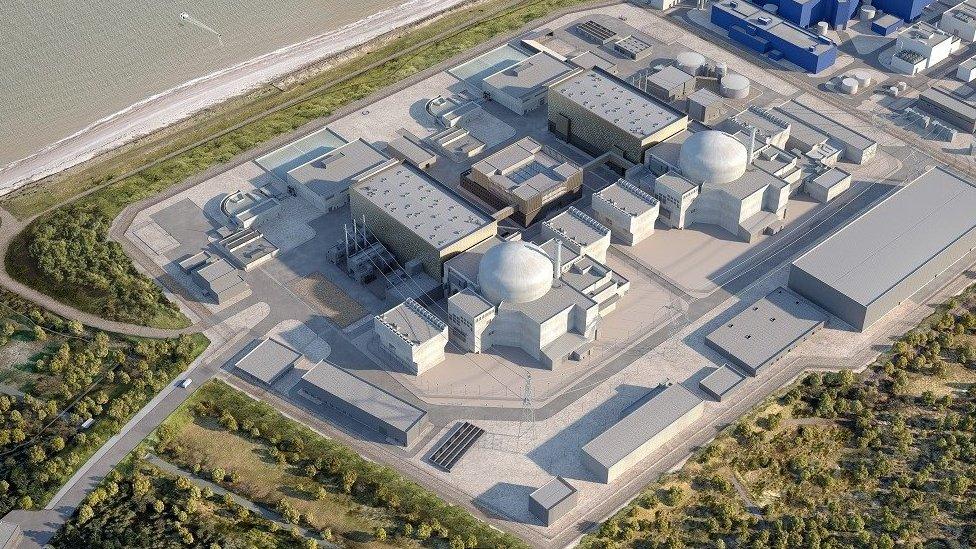
- Published20 July 2022
